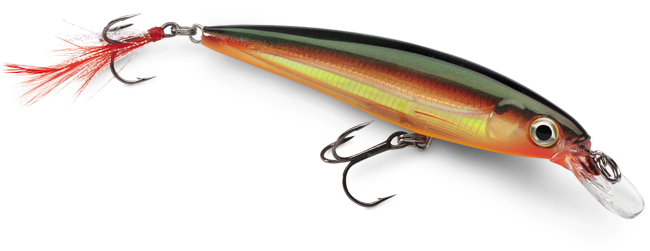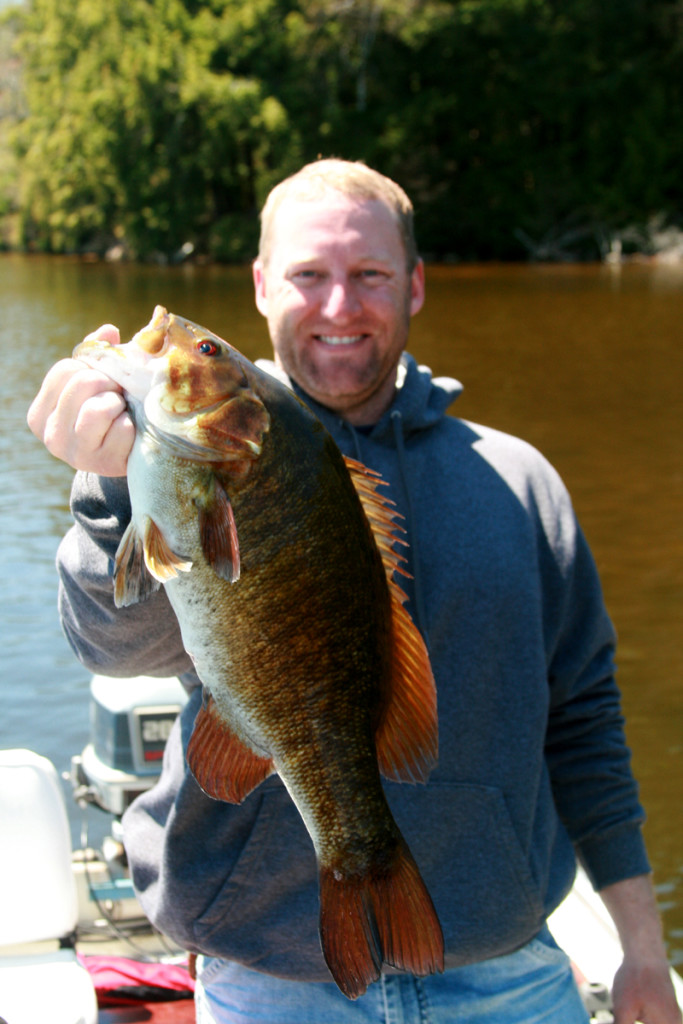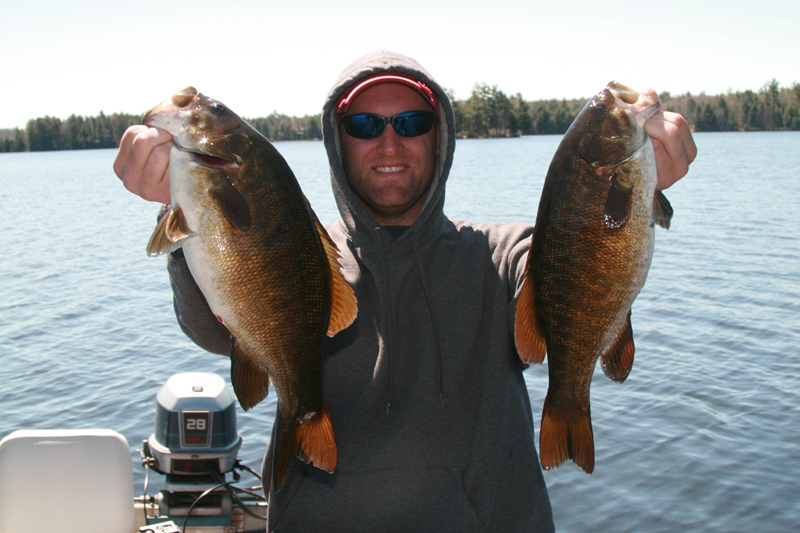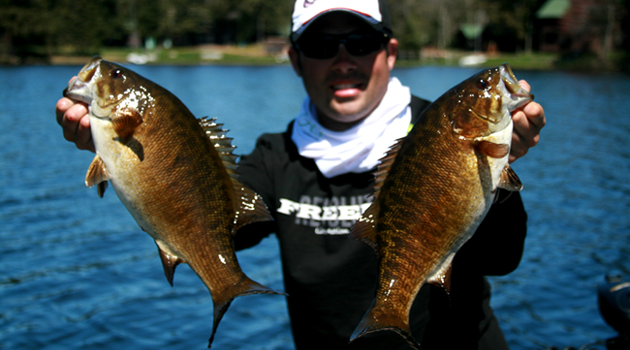Oh hell no, not another spring themed article about catching big smallmouth bass with suspending jerkbaits! Fortunately for you, hell yes it is, but more focus is on fish behavior and location. This is a special piece detailing the the spring transition from pre-spawn to spawn, so you can further understand locations and how to best approach them.
Lake Profile
Size: 1,200 acres
Lake Type: Mesotrophic
Maximum Depth: 60 feet
Avg. Depth Fished: 5 to 15 feet
Water Clarity: Very Clear
Primary Fishery: Musky, Walleye, Smallmouth Bass
Areas of Focus: Sand and gravel bars, rock shoals, deep edges of spawning flats
Time of Day: Mid Morning
Rod & Reel: 7ft Quantum Tour Edition (med. heavy) Quantum Catalyst 30PTi spinning
Line: Cortland Camouflage 8lb.
Lure Used: Rapala X-Rap 08 (Rusty Crawdad)

In late May, my partner Jacob Saylor and I traversed thru Wisconsin’s northwoods on a smallmouth trophy hunt. On this day, anything less than 18 inches wasn’t worthy of a picture. On a 1,200 acre mesotrophic lake that is managed exclusively for trophies, a smallmouth bass doubleheader was caught, followed by one of Jacob’s largest ever, a 20.5 incher. We didn’t catch numbers, but quality was had, and the whole barn door blew open and multiple patterns emerged. Fish were aggressively striking jerkbaits, crankbaits, tube jigs, football heads, and soft plastics. The fish were hungry, males were invading the shallows for spawn, and big females were moving up the breaklines to feed with fury before dropping eggs.
 A week prior, majority of the bass we were catching were waking up from their winter slumber, heavily feeding, and relating to main lake areas. When our outing began this time, we were having difficulties locating the fish and catching them. At this time, water temperatures were in the 56 to 58 degree range, and their spring structural migrations towards their annual spawning grounds was taking place. Our focus was now on shallow sun-exposed bays and pockets, and rock & gravel flats that are known spawning sites for this lake. When smallmouths undertake their spring feeding migrations and begin staging for the spawn, it’s best to be at the edges of rocky shoals and spawning flats waiting for them to arrive. When and where they will show up in the most heavily concentrated wolf packs is determined by wind and the warm undercurrents it creates, and the angle and placement of the sunlight above.
A week prior, majority of the bass we were catching were waking up from their winter slumber, heavily feeding, and relating to main lake areas. When our outing began this time, we were having difficulties locating the fish and catching them. At this time, water temperatures were in the 56 to 58 degree range, and their spring structural migrations towards their annual spawning grounds was taking place. Our focus was now on shallow sun-exposed bays and pockets, and rock & gravel flats that are known spawning sites for this lake. When smallmouths undertake their spring feeding migrations and begin staging for the spawn, it’s best to be at the edges of rocky shoals and spawning flats waiting for them to arrive. When and where they will show up in the most heavily concentrated wolf packs is determined by wind and the warm undercurrents it creates, and the angle and placement of the sunlight above.
When sunlight hits specific pieces of structure and reflects off certain bottom types, the surrounding area will bake and warm rapidly. I generally reference these areas as “microwaves”. Every lake I fish for smallmouths is full of these unique spots and they are nothing more than natural heat conductors that can only be found on your own. Good heat conductors to key in on throughout early spring are shallow sandy spawning bays (north and east shorelines best), sand flats, rocky shoals, boulders, downed wood, and windblown shorelines that are exposed to sunlight.
On my big lakes each spring, both baitfish and smallmouths are looking for the warmest water they can find – not only for feeding, but to spawn as soon as possible. On these big waters, it becomes crucial to gather as many key spots all over the lake and to plot out a milk run of spots that can be reached and revisited repeatedly throughout the day. Once on the spot, follow your electronics and gauges closely. If the water is warming, stick around and camp on the spot for as long as necessary, especially if the spot produces annually. Smallmouths will always be infiltrating onto them, especially if it’s a known spawning site.
The key to catching early season smallmouth bass in this manner is to identify these transitional paeriods, and locate spawning sites. It’s always tempting to cover as many spots as possible to maximize productivity but in early spring it’s unnecessary. Most early season trophy smallmouth like will be scored from specific spots on the big lake where the water is warmest, and fish are known to spawn at.


